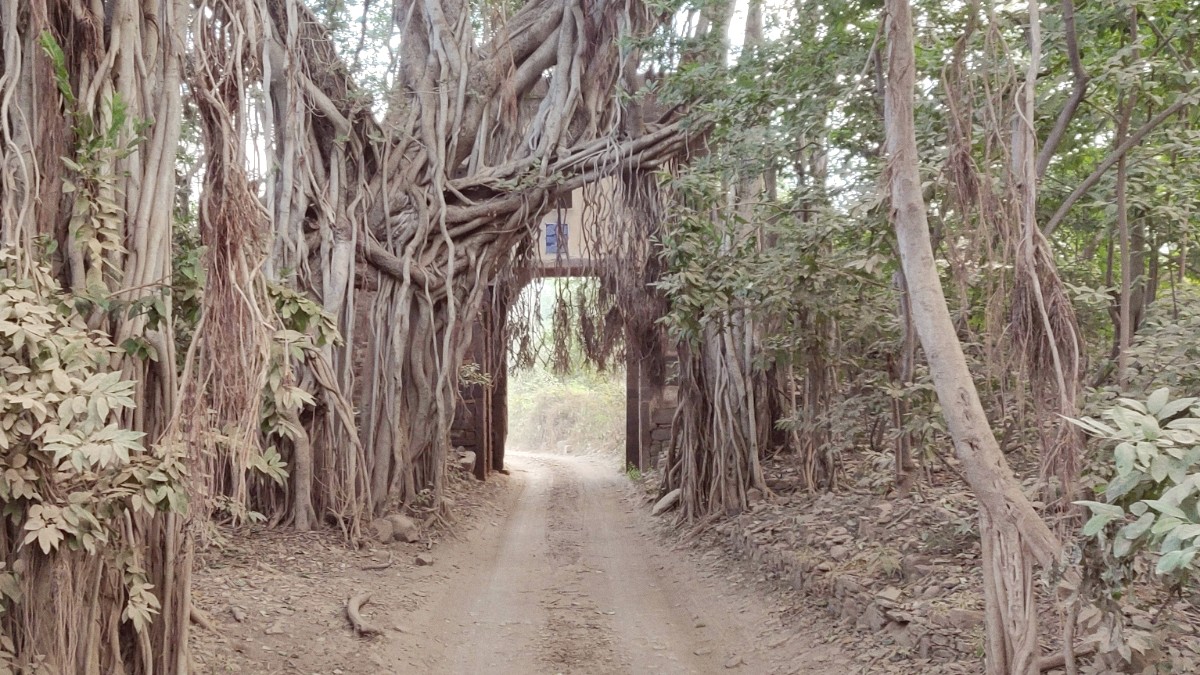
Rajasthan, India
Rajasthan is known for its rich, spicy, and often vegetarian cuisine. Historically, the cuisine developed in an arid region where water was scarce, leading to the use of dried ingredients and long-lasting preparations.
The culinary traditions show the influence of Rajput royalty, with their elaborate feasts, and local communities, who developed hardy dishes suitable for desert conditions. A significant portion of the population in Rajasthan is vegetarian, so vegetarian options are widely available.
Gram flour (besan), lentils, various beans, millet (bajra), corn (makki), and Ghee (clarified butter) are staples. Dried berries and vegetables, like Ker Sangri, are also common due to the arid climate.
Rajasthani cuisine is known for its bold, rich, and often spicy flavors. Expect extensive use of dried red chilies, turmeric, cumin, coriander, and various garam masalas (spice blends). Many dishes balance sweet and sour elements.
While general Rajasthani characteristics prevail, Ranthambore's specific offerings concentrate mostly in hotel and resort restaurants. These establishments adapt dishes for international palates, sometimes reducing spice. Local dhabas and smaller restaurants in Sawai Madhopur town offer more authentic, rustic, and spicier versions of traditional dishes.
A quintessential Rajasthani dish. It has hard, baked wheat balls (baati), served with a flavorful lentil curry (dal), and a sweet, crumbly dessert made from wheat flour, jaggery, and ghee (churma). The baati is traditionally crushed and mixed with ghee before eating.
Find at: Most Rajasthani specialty restaurants, many hotel buffets, and local dhabas in Sawai Madhopur.
A popular vegetarian curry made from gram flour dumplings (gatte) cooked in a rich and spicy yogurt-based gravy. It has an unique texture and flavor.
Find at: Rajasthani specialty restaurants and mid-range hotels.
A fiery hot mutton (goat meat) curry, a non-vegetarian specialty of Rajasthan. It is known for its rich red color, from liberal use of Mathania red chilies, and its intense spice profile.
Find at: Restaurants catering to non-vegetarian preferences, often at resorts and higher-end hotels.
Street food options are limited in Ranthambore National Park itself. However, Sawai Madhopur town offers items like Kachori (deep-fried, flaky pastry with spicy filling), Samosa (fried pastry with savory potato/pea filling), and Mirchi Vada (green chili fritters).
Malpua: Sweet pancakes, often served with rabri (thickened, sweetened milk). Ghevar: A traditional disc-shaped sweet cake, typically made from flour and soaked in sugar syrup, often garnished with nuts and mawa. It is notably popular during festivals.
Found mainly within luxury resorts like The Oberoi Vanyavilas and Aman-i-Khas. These provide multi-cuisine menus, often focusing on refined Indian and international dishes, presented in elegant settings. Expect curated dining experiences.
Many hotels and resorts have their own multi-cuisine restaurants, serving a mix of Indian (North Indian, Rajasthani), Continental, and sometimes Chinese dishes. Some standalone options exist along Ranthambore Road and within Sawai Madhopur town.
Local Dhabas: Roadside restaurants in Sawai Madhopur town offer authentic, hearty, and very affordable Indian food. These are simple establishments popular with locals and budget travelers. Small Eateries: Many small, no-frills eateries in the town market. Street Food: Limited to simple stalls in Sawai Madhopur.
Most hotel restaurants offer a selection of international dishes (often Continental breakfast options, basic pasta, or Chinese stir-fries) alongside Indian cuisine to cater to diverse tastes.
Purely non-Indian standalone restaurants are rare in Ranthambore and Sawai Madhopur.
Local markets in Sawai Madhopur town will have vendors selling fresh produce and some street food items. There are no dedicated food halls in the Ranthambore area.
Expect a focus on local and Indian culinary traditions.
Some resorts or specialized tour operators might offer private cooking demonstrations focusing on Rajasthani cuisine for their guests.
Limited opportunities exist for farm visits. Some eco-lodges or homestays in surrounding areas might offer insights into local farming practices.
Many luxury camps and resorts offer unique outdoor dining experiences, creating a romantic and atmospheric setting.
Some resorts organize picnic breakfasts near the park after morning safaris, letting guests enjoy a meal in a scenic natural setting.
Many Indian dishes are naturally gluten-free (e.g., lentil curries, rice dishes, vegetable preparations). However, wheat (in the form of roti, naan, paratha) is a staple bread. Cross-contamination can be an issue in shared kitchens. Communicate your needs clearly.
Look for rice-based meals and lentil curries.
Inform staff about any severe allergies. Smaller establishments may have limited awareness or capacity to cater to complex allergen requirements. Higher-end hotels and resorts are usually better equipped to handle these requests.
Always double-check ingredients if unsure.
When ordering, inquire about the spice level if you are sensitive to heat. Many Rajasthani dishes are flavorful and use chilies.
Opt for freshly prepared dishes over buffets at smaller establishments to further reduce potential cross-contamination risks for severe allergies.
Some resorts or specialized tour operators might offer private cooking demonstrations focusing on Rajasthani cuisine for their guests. These are not widely available as standalone public classes.
Limited opportunities exist for farm visits. Some eco-lodges or homestays in the surrounding areas might offer insights into local farming practices or provide opportunities to see local produce.
No specific food festivals are unique to Ranthambore. However, if your visit coincides with broader seasonal or religious festivals in Sawai Madhopur, you might find special dishes and celebratory meals.
When ordering, inquire about spice levels if you are sensitive to heat. Many Rajasthani dishes are flavorful and use chilies.
Specify "less spicy" or "not spicy at all" if preferred.
Interacting with local vendors in Sawai Madhopur can offer insights into everyday life and authentic culinary practices.
Don't hesitate to ask about local specialties.
Always drink bottled water and consider avoiding uncooked street food or items that may have been washed with tap water if you have a sensitive stomach.
For any dietary restrictions or allergies, communicate them clearly and politely to restaurant staff, especially in higher-end establishments that can better accommodate.
While international options are available in resorts, embracing the authentic Rajasthani cuisine will greatly enrich your cultural experience.